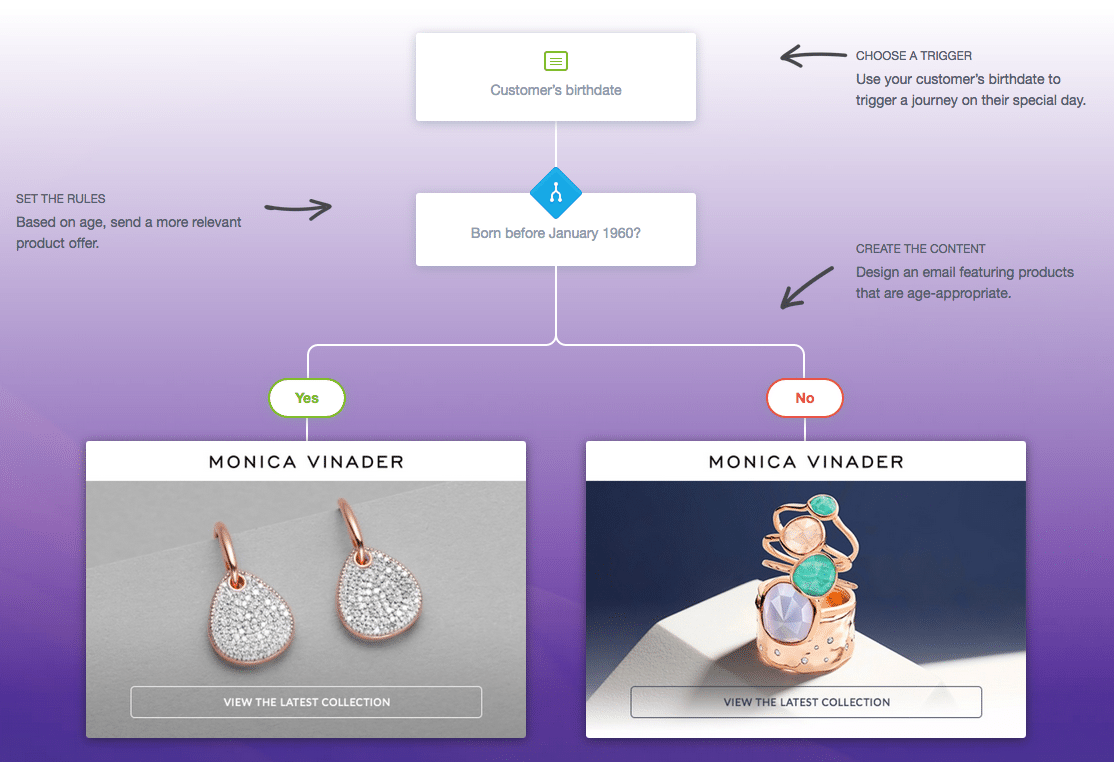With the opportunity to connect with target audiences via email, social media platforms, and other online outlets, companies have more ways than ever before to get their message in front of the right customers and prospects.
From its reputation for high ROI to the ability to tie-in personalized content, email marketing offers unique, value-driven ways to deliver campaigns and allows marketers to connect with customers and drive revenue in a way that’s unparalleled.
In this post, we explore why every integrated campaign should include email marketing.
1. Email delivers highest ROI of all channels
For the most part, the email inbox is still sacred space. And because it’s not limited in exposure by algorithms on social media platforms, it’s staying power makes it extremely valuable.
As a result, email marketing is known for delivering impressive ROI. And data proves this: VentureBeat reported that email has the highest ROI of any marketing channel, McKinsey research shows that the average order value of an email is at least three times higher than at of social media, and McKinsey research shows that the average order value of an email is at least three times higher than at of social media, and in comparison to direct mail, email delivers 21.5% higher ROI.

Add to this the fact that the DMA reported 77% of marketing ROI comes from segmented email campaigns, and it’s not all that surprising that well-designed email campaigns should always play a core role in the modern integrated campaign.
2. Personalization wins
Beyond email’s ability to deliver value, it also offers marketers a chance to tie in personalization to their integrated campaigns. And today, personalization is extremely important when it comes to crafting highly effective integrated campaigns.
Why? Because it works. Personalized emails generate 58% of all revenue according to the DMA, and 74% of marketers say targeted personalization increases customer engagement.
Personalization can take many forms. From incorporating a subscriber’s first name to building out robust customer journeys that are time or action triggered, email marketing has unique advantages on the personalization front.
What does this look like in action? Take a look at how Monica Vinader uses personalized customer journeys to tie in email with integrated campaigns around products:

As you can see in the example, these personalized, automated email series allow the brand to send highly relevant product marketing campaigns that no doubt work alongside additional marketing efforts to educate shoppers and generate revenue.
3. Customer retention
Retaining current customers is far less expensive than acquiring new ones–so when creating integrated campaigns, it makes sense to tie in emails specifically aimed at customer retention.
It pays to take on these efforts, too. According to Temkin Group, loyal customers are 5x as likely to repurchase, 5x as likely to forgive, 4x as likely to refer, and 7x as likely to try a new offering.
So how can you use email to drive customer retention in integrated campaigns?
- Subscription re-up emails: Remind customers when their subscription is about to expire to drive renewals
- Perks for loyal customers: Create loyalty programs that reward your best customers
- Re-engagement campaigns: Use ‘We’ve Missed You’ style campaigns to get back in touch with customers who haven’t recently made a purchase or used your service
- Surveys: Give your customers a voice and constantly improve the overall experience with survey data
To see this tactic in action, take a look at this example of a customer retention email from Derwin Dental:

Incorporating customer retention emails into integrated campaigns is a simple way to proactively address customer churn while driving sales at the same time.
4. Create multiple touch points across channels
The more places and ways you can interact with your audience, the better. That’s why when you think about integrated campaigns, you probably think about creating multiple touch points across channels for as many customer interactions as possible.
Having email as one of the touchpoints is good news because a well-design campaign allows you to get in touch with buyers in their preferred format, whether that’s on a mobile device or a home desktop computer. Considering 68% of emails are opened on mobile devices, this is just one more way you can accommodate your audience.
Plus, with integrations that allow you to connect your store and social sharing tools, you can make your messages go even further. Win-win!
Wrap up
The bottom line here: Integrated campaigns become much stronger when email marketing is part of the equation, thanks to its ability to drive ROI and customer retention, to integrate customer data for smart personalization, and the resources that make shopping only a click away.
The next time you’re considering your strategy, think about how you can make email marketing a key part of the equation.





